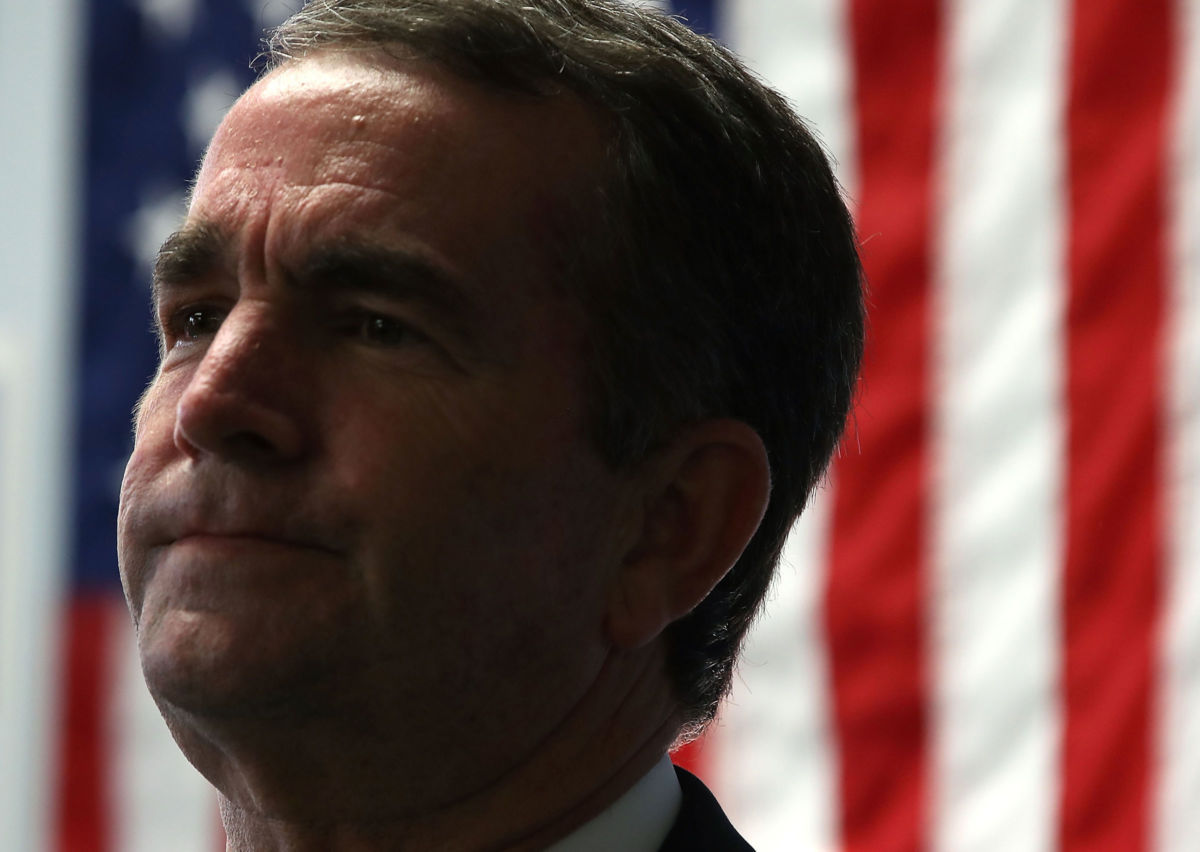Primum non nocere translates from Latin to, “First, do no harm.”
For centuries, this phrase has guided doctors as a solemn principle acknowledging the sacred trust placed in us by the communities we serve. When we violate this trust, we betray this intimate social contract.
Dr. Ralph Shearer Northam, governor of Virginia and renowned pediatric neurologist and public servant, has betrayed this contract.
Despite many calls from leaders and presidential candidates across the political spectrum, Governor Northam has refused to resign following the outrage erupting from a photo released recently from his 1984 Eastern Virginia Medical School “student-produced” yearbook. He has denied that he is either of the two young men posing, one in blackface and the other in a Ku Klux Klan hood and robe, though he has admitted to wearing blackface in the past. This comes as Virginia Attorney General Mark Herring also admitted wearing blackface in the past and now Governor Northam is embarking on his apology tour in attempts to focus on racial inequity and save his political career.
However, the gesture is an affront to many African Americans, especially to those who elected Northam. Once lauded for his progressive policies, Northam’s confirmed participation in this racist image — and his subsequently bizarre “sorry-not-sorry” denial, complete with an abandoned Michael Jackson moonwalk — has made him the subject of a national embarrassment.
While Northam is under political fire, his profession should be under fire as well.
Racism is a pervasive problem within this country, a moral sickness that penetrates all levels of society, including medicine. It is both overt and subtle, personal and systemic, and in all its forms, is harmful to the health of those who experience its ravages.
Neither surgeons nor pediatricians are immune to the anti-Black racism that exudes from our society. History bears the horrors of the Tuskegee Experiment and the forced gynecological surgeries by the “father” of modern gynecology, James Marion Sims. Today, abuses continue, as recent research demonstrates, for example, that Black children are less likely to receive pain medication for appendicitis compared to white children. Moreover, Black women face up to four times the risk of pregnancy-related death rate of their white counterparts.
From our perspective as pediatricians, Northam, a board-certified, pediatric neurologist who has undoubtedly cared for countless children from diverse backgrounds, has betrayed this trust. His actions are an unfortunate echo of a medical profession historically marred by overt racism and more subtle aggressions that have contributed to a pattern of systemic health disparities and injustice that continues today.
Pediatricians are not immune to racism. As pediatricians, we pledge to “first, do no harm” as we seek to heal others, but this may not be possible when pediatricians perpetuate racism and harm the children they aim to heal.
Research has shown a pervasive experience of racism leads to worse overall health. Racism’s influence on health is apparent in childhood. Children exposed to racism are more likely to have depression, anxiety and viral illnesses. This can occur even for those who are not the intended target. Children exposed to this type of racism, called “vicarious racism” — like Northam’s racist photo — may experience worse health.
Youth can experience vicarious racism through a variety of sources: from racist images and jokes online, to the multiple, easily accessible racially-charged videos of police killing Black people. However, research has mostly focused on children who experience racism vicariously through their parents’ own experiences. These vicarious experiences may make youth more susceptible to depression and behavioral problems. Racism in itself is detrimental for health, but may be further compounded when the physician is the perpetrator of racism or holds racist beliefs.
As our country becomes increasingly diverse and simultaneously more segregated, physicians must task themselves with examining how their implicit and explicit biases perpetuate racism in our society. In addition to reflection and examination, physicians must also act. Health care providers — along with their institutions, employers and professional organizations — have a responsibility to ameliorate the wrongs of our past and present. Individual physicians and medical institutions alike must critically examine the biases and prejudices that perpetuate racism, white supremacy and other harmful ideologies.
Medical schools need to foster inclusive learning environments where diversity is celebrated and not insulted — in public or in private — and reject the environment that once existed at Eastern Virginia Medical School and many others, where publication of such offensive images was the norm.
Those in medicine need to elevate the work of those addressing implicit bias among our colleagues, such as of Dr. Quinn Capers IV, who leads hospital systems and medical schools in exercises to explore and mitigate implicit bias in hiring and education, and Dr. David Acosta who advocates for implementation of an anti-racism curriculum in medical schools nationwide.
Whether or not Northam is indeed one of the two figures posing in racist garb on his yearbook page is not the point. While all physicians are certainly not racist, all are susceptible to the implicit biases that perpetuate harmful stereotypes about, and inequities within, communities of color. It is best to be reminded that some harm cannot be undone.
5 Days Left: All gifts to Truthout now matched!
From now until the end of the year, all donations to Truthout will be matched dollar for dollar up to $50,000! Thanks to a generous supporter, your one-time gift today will be matched immediately. As well, your monthly donation will be matched for the whole first year, doubling your impact.
We have just 5 days left to raise $50,000 and receive the full match.
This matching gift comes at a critical time. As Trump attempts to silence dissenting voices and oppositional nonprofits, reader support is our best defense against the right-wing agenda.
Help Truthout confront Trump’s fascism in 2026, and have your donation matched now!
